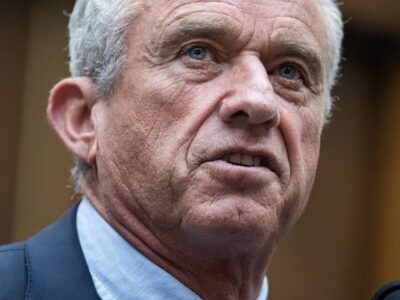The Power of the Purse
House Democrats have power to use appropriations process to stop Trump Administration environmental rollbacks
Dan has already posted about some of the big deregulatory steps the Trump Administration is likely to take in the next year. But the new Democratic majority in the House could have something to say about those steps, if they wanted to. Democrats will have even more leverage over spending bills than they had in the last Congress, since not only can they block bills in the Senate with a filibuster-proof minority, but they now have a majority in the House of Representatives. In particular, Democrats could put restrictions in any spending bills preventing agencies from spending funds on any of the deregulatory steps that Dan mentioned, stopping the Administration’s efforts to issue new rules. Here are some of the regulatory rollbacks that the Administration has proposed but are not yet finalized that could be addressed in this way:
- The Trump Administration’s efforts to replace the Clean Power Plan (the Obama Administration effort to regulate carbon emissions from existing fossil-fuel burning power plants under the Clean Air Act)
- A proposed redefinition the geographic scope of regulation under the Clean Water Act to exclude millions of acres of wetlands and headwater streams (the Waters of the United States or WOTUS Rule)
- Proposals to stop increasing the requirements for fuel efficiency for new cars in the United States, and to strip California of its ability to set higher fuel efficiency standards under the Clean Air Act
- A proposed rule to eliminate the consideration of “co-benefits” in the determination of whether to regulate mercury emissions from power plants. “Co-benefits” are the additional indirect regulatory benefits from the reduction of a pollutant – in this case, the benefits of reducing mercury include not just less mercury in the air but also the reduction in other pollutants caused by reducing overall emissions under the rule. As Ann noted yesterday, there are potentially significant legal implications from this proposed rule that might extend broadly throughout the federal government, to a wide range of efforts to protect the environment and public health.
- A proposal to eliminate the Obama Administration regulation of carbon emissions from new fossil-fuel burning power plants under the Clean Air Act.
- A proposal to roll back an EPA regulation restricting methane emissions from new oil and gas facilities.
- A proposal to weaken regulation on emissions from start-ups, shutdowns, and malfunctions at power plants
- A proposal to weaken regulation of methane emissions from municipal land-fills.
- A proposal to expand oil and gas drilling in federal waters offshore of the Atlantic and Pacific coasts
- Allowing oil and gas development in the Arctic National Wildlife Refuge in Alaska (threatening crucial wildlife habitat in a part of the world strongly affected by climate change).
- Weakening regulations for worker safety and blow-out prevention for offshore oil and gas development in federal waters, regulations that were prompted by the Deepwater Horizon disaster.
- Revisions to the ways in which the Endangered Species Act protects species-at-risk, particularly species designated as “threatened.” (Law professor comments on those proposed changes are summarized here.)
- Proposals to weaken protection for sage grouse habitat on millions of acres of Western federal public lands, opening those lands up to oil and gas development.
- The EPA’s “secret science” proposal that would prevent the use of much peer-reviewed scientific data for environmental regulation, particularly in the air pollution context.
In all of these cases, Congress has the power to prevent spending on finalizing any of these proposed rules, stopping the deregulatory process. There are limits to this approach: it doesn’t help where the Administration has already completed the final rulemaking process; it doesn’t stop the Administration from slow-walking implementation or enforcement of existing rules (though in some cases, such as protecting California’s ability to set its own automobile fuel efficiency standards, this is not really an issue since California will surely regulate anyway). In addition, agencies can always try to write a new, slightly different proposed rule to get around any funding ban specific to a particular proposed rule. Thus, any restrictions on funding probably should include a provision that the restrictions also apply to “substantially similar” proposed regulations. And of course, President Trump can always veto any of these proposed funding restrictions. But the current government shutdown might give the House Democrats some leverage to force some or many of these provisions on the White House.
Stopping these regulations might have a benefit not just for the direct environmental impacts that would be avoided by stopping the deregulatory push. It also might avoid the possibility of legal challenges to these Trump Administration proposals, legal challenges that might eventually go to the Supreme Court, potentially producing bad precedent interpreting the underlying environmental law. (Indeed, this may well be the strategy being pursued by the Administration for some of the more aggressive regulatory proposals they are pursuing.)








Reader Comments